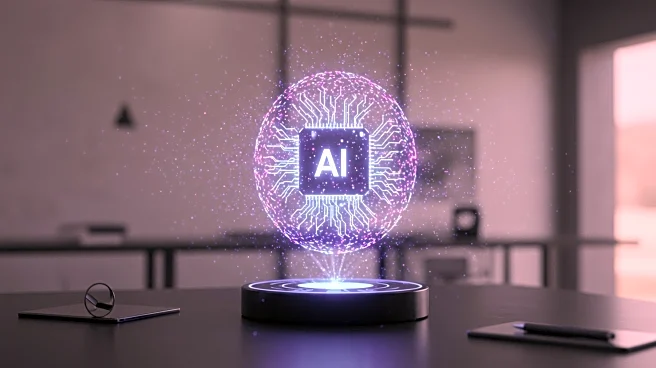What is the story about?
What's Happening?
OpenAI's recent release of the GPT-5 model has led to significant changes in the behavior of AI companions, causing distress among users who have formed emotional connections with these digital entities. The update, described by OpenAI's CEO Sam Altman as a 'significant step forward,' has resulted in AI companions exhibiting less warmth and emotional depth, according to users on platforms like Reddit. This shift has prompted complaints from users who feel their AI partners have become less engaging and emotionally responsive. OpenAI has acknowledged the feedback and plans to allow users to revert to the previous GPT-4o model while working on making GPT-5's personality warmer.
Why It's Important?
The backlash against GPT-5 highlights the growing emotional attachment some users have to AI models, reflecting broader societal trends as technology becomes more integrated into personal lives. This development raises questions about the ethical implications of AI relationships and the responsibilities of tech companies in managing user expectations and emotional well-being. As AI technology advances, the divide between those who view AI relationships as valid and those who see them as delusional is becoming more pronounced, indicating a shift in societal norms and the potential for increased reliance on AI for companionship.
What's Next?
OpenAI's response to user feedback suggests ongoing adjustments to the GPT-5 model to address concerns about its emotional responsiveness. The company plans to make the AI's personality warmer, balancing user preferences with technological advancements. This situation may lead to further discussions about the role of AI in personal relationships and the need for ethical guidelines in developing emotionally intelligent AI systems. Stakeholders, including tech companies and policymakers, may need to consider regulations to ensure AI interactions remain healthy and beneficial.
Beyond the Headlines
The evolution of AI relationships could have long-term implications for human interaction and societal norms. As AI becomes more capable of mimicking human emotions, the line between digital and real-world relationships may blur, potentially affecting traditional social structures and interpersonal dynamics. This trend could also influence the development of AI technologies, pushing companies to prioritize emotional intelligence in their products.
















